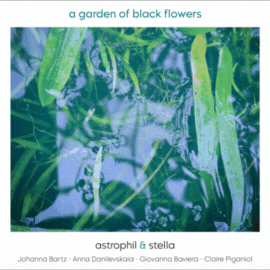Le Diable à Paris ist eine Operette von Marcel Lattès aus dem Jahr 1925, die in einem kleinen Bahnhof im Baskenland beginnt, wo zwei in der Liebe erfolglose Männer den Teufel beschwören. Mephisto erscheint und ist hoch erfreut, dass er nicht völlig vergessen wurde. Er gibt den beiden Geld unter der einzigen Bedingung, dass sie ihm einen angenehmen Aufenthalt in der Hauptstadt arrangieren, wo er sich seit 1859 (also seit Gounods Faust) nicht mehr aufgehalten hat.
Paris hat sich sehr verändert, und der Dämon findet nun dort Männer, die cleverer und sogar böswilliger sind als er!
Eine beschwingte Musik mit schönen Arien, Szenen, Chören und Tänze lassen diese Operette reizvoll werden.
Dylan Corlay lässt diese sorgfältig restaurierte Musik in einer Interpretation aufleben, die ihren Humor und ihre Frivolität genüsslich darstellt. Die spritzige Aufführung hat auch vokal ein gutes Niveau, denn ausnahmslos alle Stimmen passen zu ihren Rollen, und es gibt neben guten auch wirklich exzellente stimmliche Leistungen.
Die Lattès-Operette ist also empfehlenswert für jeden, der sich im Französischen genug auskennt, um auch die Subtilität des Librettos genießen zu können.
Le Diable à Paris is a 1925 operetta by Marcel Lattès that begins in a small train station in the Basque Country, where two men unsuccessful in love summon the devil. Mephisto appears and is delighted that he has not been completely forgotten. He gives the two money on the sole condition that they arrange a pleasant stay for him in the capital, where he has not been since 1859 (that is, since Gounod’s Faust).
Paris has changed a lot and the demon now finds men there who are cleverer and even more mischievous than he is!
A lilting music with beautiful arias, scenes, choruses and dances make this operetta delightful.
Dylan Corlay brings this carefully restored music to life in an interpretation that enjoys its humor and frivolity. The splashy performance has a good vocal level as well, for all the voices without exception fit their roles, and there are truly excellent vocal performances as well as good ones.
The Lattès operetta is thus recommendable to anyone who knows enough French to be able to enjoy the subtlety of the libretto as well.

























